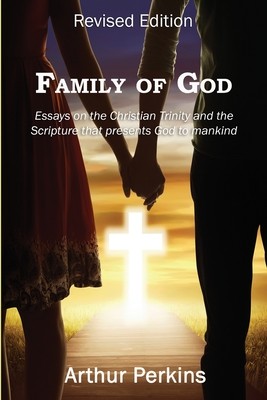
- We will send in 10–14 business days.
- Author: Arthur Perkins
- Publisher: Signalman Publishing
- ISBN-10: 194014583X
- ISBN-13: 9781940145839
- Format: 15.2 x 22.9 x 2.4 cm, minkšti viršeliai
- Language: English
- SAVE -10% with code: EXTRA
Reviews
Description
- What is the true nature of the Holy Trinity?
- Who is the God of the Old Testament?
- Is there a sharp split between the messages of the Old and New Testaments, or is the message the same?
- Did Jesus lose at the cross?
- Are there many paths to Heaven?
- Who is really marginalizing Chrisitanity?
- Why does God permit suffering?
- What do famous Biblical personages have in common with the Marine rifleman?
- Why is modern scientific speculation quietly backtracking into conformity with the Bible?
- Does the Bible contain information beyond our expectations?
For centuries Church dogma, with its baggage of politics and man-centered tradition, has colored our approach to the interpretation of the Bible. This book takes a fresh look at what Scripture has to say about the nature of God and of how we are to interact with Him.
Scripture itself hints of an understanding by its authors of the Trinity that went beyond our present knowledge. The early Church Fathers appear to have possessed that perspective as well, an understanding that may have been lost along with their initial love of God as Christianity became accepted politically and civilization descended into the dark ages. Along with that descent Christianity hardened into rigid, politically expedient dogma which subordinated the love of God to a harsher, more controlling message. The deep schism among Christians over the status of the Blessed Mary indicates how influential this misunderstanding may be. The Catholic veneration of May, frowned upon by Protestants, may be reaching for a higher truth that could be extremely significant to all Christians, Protestant and Catholic alike.
Discussions covered here include the nature of the Trinity, the usefulness of evil, the nature of truth, the enormous catastrophe of Noah's Flood, and a presentation of the intricate details associated with Jesus' feeding of the multitudes.
EXTRA 10 % discount with code: EXTRA
The promotion ends in 22d.15:00:52
The discount code is valid when purchasing from 10 €. Discounts do not stack.
- Author: Arthur Perkins
- Publisher: Signalman Publishing
- ISBN-10: 194014583X
- ISBN-13: 9781940145839
- Format: 15.2 x 22.9 x 2.4 cm, minkšti viršeliai
- Language: English English
- What is the true nature of the Holy Trinity?
- Who is the God of the Old Testament?
- Is there a sharp split between the messages of the Old and New Testaments, or is the message the same?
- Did Jesus lose at the cross?
- Are there many paths to Heaven?
- Who is really marginalizing Chrisitanity?
- Why does God permit suffering?
- What do famous Biblical personages have in common with the Marine rifleman?
- Why is modern scientific speculation quietly backtracking into conformity with the Bible?
- Does the Bible contain information beyond our expectations?
For centuries Church dogma, with its baggage of politics and man-centered tradition, has colored our approach to the interpretation of the Bible. This book takes a fresh look at what Scripture has to say about the nature of God and of how we are to interact with Him.
Scripture itself hints of an understanding by its authors of the Trinity that went beyond our present knowledge. The early Church Fathers appear to have possessed that perspective as well, an understanding that may have been lost along with their initial love of God as Christianity became accepted politically and civilization descended into the dark ages. Along with that descent Christianity hardened into rigid, politically expedient dogma which subordinated the love of God to a harsher, more controlling message. The deep schism among Christians over the status of the Blessed Mary indicates how influential this misunderstanding may be. The Catholic veneration of May, frowned upon by Protestants, may be reaching for a higher truth that could be extremely significant to all Christians, Protestant and Catholic alike.
Discussions covered here include the nature of the Trinity, the usefulness of evil, the nature of truth, the enormous catastrophe of Noah's Flood, and a presentation of the intricate details associated with Jesus' feeding of the multitudes.


Reviews